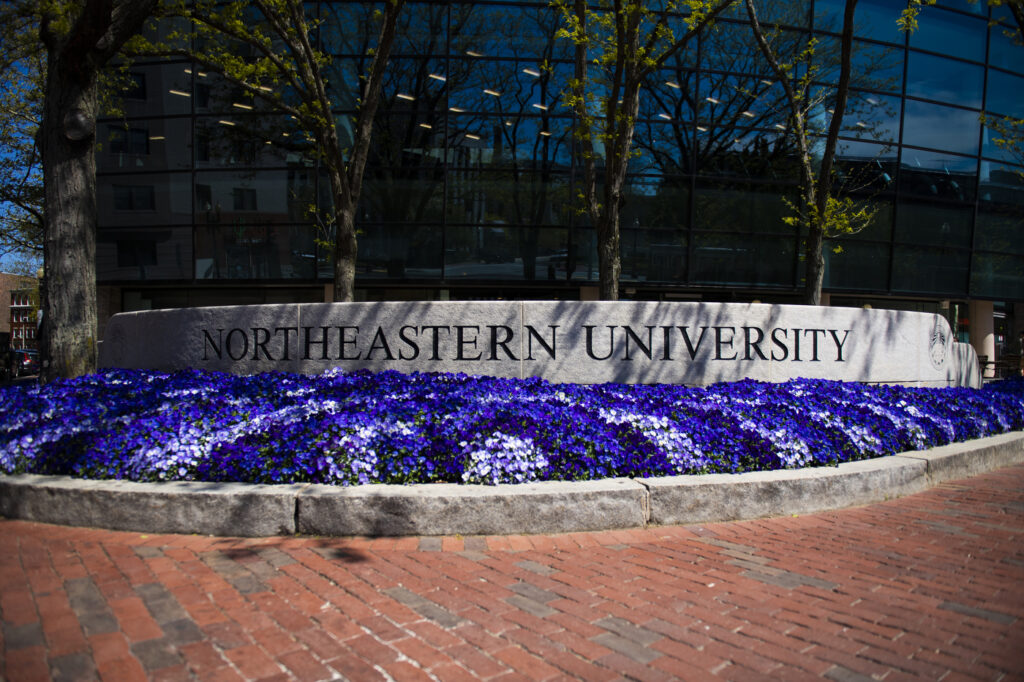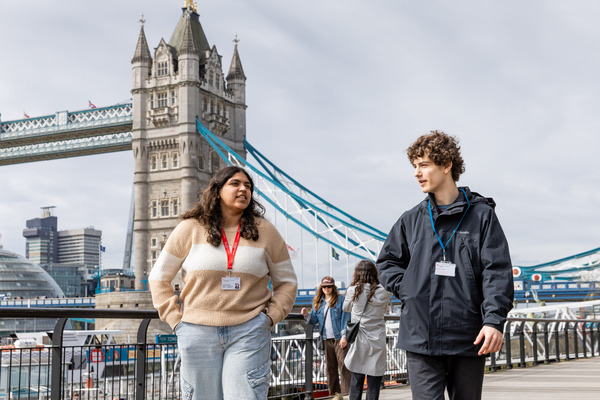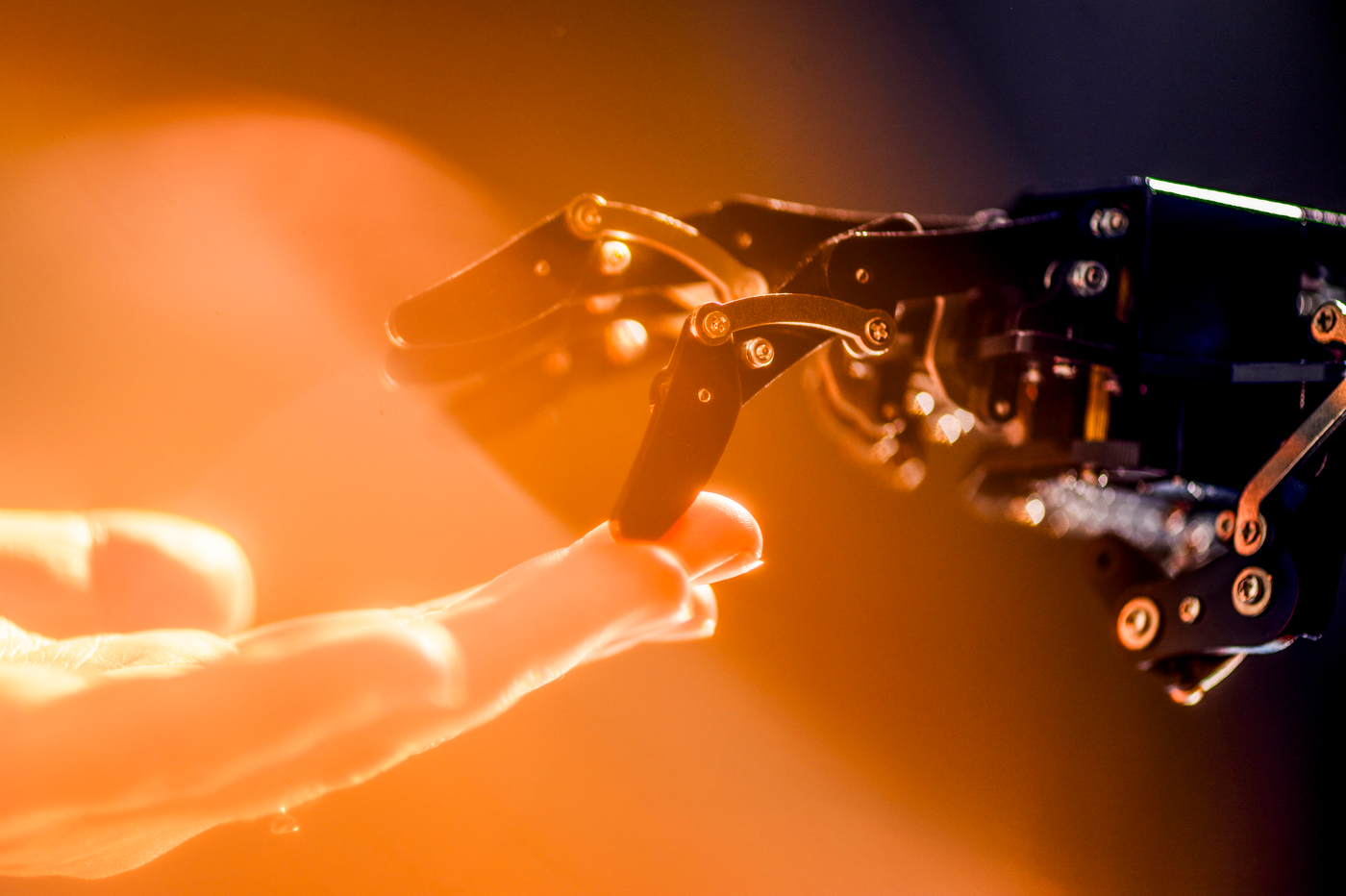Innovating Together: Humanics Program Funds Seven New Courses

May 15, 2024
The Humanics: Integration for Impact course development program has funded the building of seven new courses across the university network in 2024/2025. Cross-disciplinary teams of faculty are working with external partners ranging from the tech companies to community nonprofits in creating courses and projects with new experiential opportunities for our students.
The seven Humanics courses are:
Coding Truth: Misinformation, Data, and Politics (CAMD, CSSH, & Khoury)
An introductory-level course designed for students who want to familiarize themselves with the emerging world of digitally scaled mis- and disinformation. Students will learn how technology amplifies or mitigates the spread of mis- and disinformation. They will also address how stakeholders such as journalists, governments, digital platforms, and public institutions, can navigate and combat information disorder, offering insights into the future landscape of this evolving challenge. Students will have an opportunity to work on a project with a non-partisan, nonprofit media outlet focused on providing educational content and fact-checking training.
Team: Myojung Chung (Journalism, CAMD), Chenyan Jia (Journalism and Computer Science, CAMD & Khoury), and Costas Panagopoulos (Political Science, CSSH)
Creating Impact: Experiential Project (NU London, Faculty of Social Sciences and Faculty of Computing, Mathematics, Engineering and Natural Sciences)
A 2000-level course in which students work in interdisciplinary teams to help address a complex, real-world problem in London’s local context. The course and projects will help students develop a deeper understanding of the intertwining relationship of AI (artificial intelligence), ethics, and sustainability to develop proposals for solutions. For example, students will have the opportunity to review selected datasets of a UK-based sustainability technology company and pitch possible solutions to the energy challenges faced by the company.

Team: Rebecca Maccabe, (Business and Project Management, Faculty of Social Sciences, NU London), Mark Martin (Data Science and AI, Faculty of Computing, Mathematics, Engineering and Natural Sciences, NU London), and Sian Joel-Edgar (Computing and Information Systems, Faculty of Computing, Mathematics, Engineering and Natural Sciences, NU London)
Engineering at the Interface of Science and Society (COE and CSSH)

A 2000-level course in which students work in interdisciplinary teams to help address a complex, real-world problem in London’s local context. The course and projects will help students develop a deeper understanding of the intertwining relationship of AI (artificial intelligence), ethics, and sustainability to develop proposals for solutions. For example, students will have the opportunity to review selected datasets of a UK-based sustainability technology company and pitch possible solutions to the energy challenges faced by the company.
Team: Esin Sozer (Bioengineering, COE) and Laura Senier (Sociology and Health Sciences, CSSH & Bouve).
Environmental Studies and History: Black and Blue Ecologies (CSSH, COS, & CAMD)

A new course that will be launched on the Boston Campus in Spring 2025. This course will explore how the legacies of colonialism and slavery have placed Black communities on the frontlines of a global ecological crisis and what it will take–politically, economically, socially, and culturally–to reframe, repair, redress, renew, and safeguard life across lines of social difference today. This course will help students assess opportunities for regional transformation, transnational accountability, and reparative ways of knowing, dwelling, and taking action amid crisis. Students will have the opportunity to work with libraries, public history collaboratives, community-based nonprofits, and community centers, such as local churches.
Team: Kris Manjapra (History and Cultures, Societies, and Global Studies, CSSH), Elizabeth Maddock Dillon (English, CSSH), Ali Glassie (English and Marine and Environmental Sciences, CSSH & COS), and Caleb Gayle (Journalism and Cultures, Societies, and Global Studies, CAMD & CSSH).
Product Design and Human Impact (COE & CAMD)
An introductory-level course that will offer students an integrative opportunity to learn product design from a combined technical and human perspective. Students will learn how the values of a designer affect the technologies that are developed for the human experience. Identifying a human need, students design and prototype a product solution that will work in a human context together with tech industry partners.
Team: Rich Whalen (First Year Engineering, COE), Mark Sivak (Art + Design and Sherman Center, CAMD & COE), and Joshua Hertz (First Year Engineering, COE).
Sustainable Cities and Communities
A 2000-level course that allows students to explore contemporary debates in urban political ecology in the face of climate emergency. Topics include the specific impacts of global heating on cities; the role for urban leadership in addressing climate change and biodiversity loss; the historical background of urban struggle over environmental justice; design, planning and policy experiments and innovations seeking to create more inclusive and sustainable cities; and the harnessing of urban analytics and data to inform and drive these efforts — all explored and interrogated through the lens of London. Students will take part in one of the many ongoing London-based, international projects organized by the UK arm of a global network of cities focused on mobilizing data and urban analytics to usher in an era of sustainable cities through international cooperation.
Team: John Ackerman (Politics and International Relations, Faculty of Social Sciences, NU London), Olly Ayers (History and Art History, Faculty of the Humanities, NU London), Mariana Macedo (Data and AI, Faculty of Computing, Mathematics, Engineering and Natural Sciences, NU London), and Kate Grandjouan (History and Art History, Faculty of the Humanities, NU London).
Transformative Justice through Computer Science
An introductory course that will focus on applying transformative justice approaches to supporting a community of recently incarcerated women of color. Students will investigate innovative re-entry solutions. Learning thoughtful engagement and careful listening to community partners, students will develop and deploy technology-based solutions that will aid individuals in transitioning to life outside prison, while providing them with more equitable access to technology learning. Students will learn to be trauma-aware and culturally sensitive by working with nonprofit organizations specializing in assisting incarcerated and formerly incarcerated women of color.
Team: Darcelle Lahr (Entrepreneurship, Mills College at Northeastern) and Laney Strange (Computer Sciences, Khoury College, Boston)

